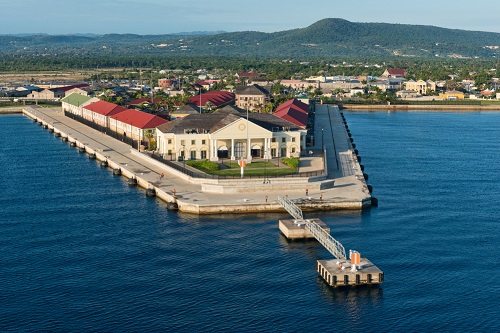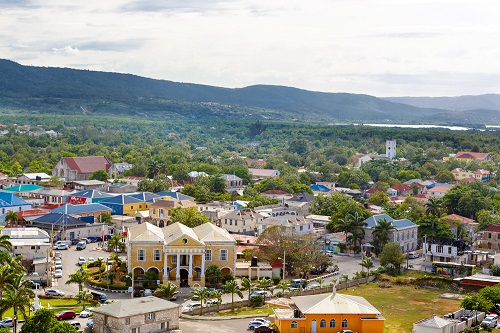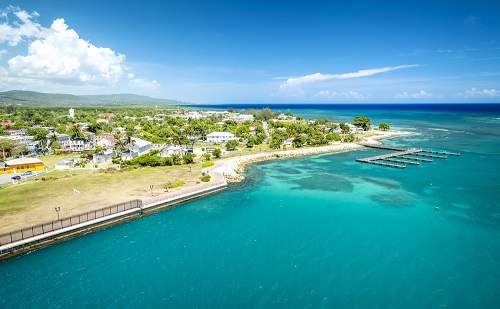Jamaica suffers from limited provision of public healthcare, shortages of both medical personnel and medical equipment, and a struggle for funding, with a comparatively expensive, and not yet fully developed, private sector.The island is not currently a major destination for medical tourism, although the authorities are making an effort to change this. They are also making commendable efforts to improve public healthcare, with heavy investment into oncology and other areas of care from public/private partnerships.
Most expats on the island opt for private healthcare, and many access treatment in the States, such as in nearby Florida. It should be noted, however, that costs in some Jamaican private clinics are less than in the USA.
State health insurance costs in Jamaica
Jamaica has a two-tier system of health insurance, with both public and private cover. However, it is in the process of overhauling its national health insurance scheme, run by the National Health Fund (NHF), and it is aiming to provide the Jamaican population with universal coverage. Much of the treatment in the public sector is free at the point of delivery, and the Jamaican government has been making significant efforts to provide free coverage for the poorest members of society.
As an expat, you will be entitled to access public healthcare, so long as you are making contributions into the NHF or are prepared to pay upfront. At present, however, you are likely to find advanced facilities only in Kingston and Montego Bay. Many expats choose to use their private health insurance. They either visit private clinics or, if they are in need of specialist treatment that is unavailable on the island, fly into Florida or elsewhere in the USA.

The state insurance system covers:
• Primary treatment
• Hospital treatment
• Treatment for 17 chronic diseases (see below)
If you are working in Jamaica, your employer should register you with the national scheme or a private provider (possibly a local one), depending on your employment package.
The NHF Card Programme provides subsidies to every person living in Jamaica, of any age, for the treatment of 17 chronic illnesses, including epilepsy, asthma, arthritis, diabetes and depression. It will also allow you to access prescriptions.
It works on a co-payment system, in which the NHF pays the bulk of the cost, and you must cover the rest. There is also a JADEP plan for older residents, which covers treatment for chronic conditions, such as cardiac disease, glaucoma, and hypertension.
How much does treatment cost in the private sector?
Out of pocket payments in the private sector are affordable. For example, seeing a private doctor in Kingston can cost between JMD$3,500 and JMD$4,500 (US$25 and US$32). Medical centres may also require cash payments upfront for any treatment.
If, for example, you give birth in the public sector, then this will be free at the point of delivery, with the exception of a JMD$200 (US$1to US$2) registration fee for your baby. However, giving birth is much more costly in the private sector, with prices running up to JMD$230,000 (US$1688) for a Cesarean section.
Private rooms at Andrews Memorial Hospital cost JMD$14,000 (US$102) per day, and for a semi-private room, where you share your room and bathroom, you will have to pay JMD$11,500 (US$84) per day. Hargreaves Memorial Hospital in Mandeville requires deposits of between JMD$75,000 and JMD$160,000 (US$550 and US$1174).
The cost of cancer treatment on the island in private clinics varies. Chemotherapy can cost more than JMD$25,000 (US$184). Breast cancer treatment, for example, can cost between JMD$600,000 and JMD$800,000 (US$4400 and US$5800) per breast.
To get a hip replacement, you may find quotes for around JMD$400,000 (US$2936) for the replacement joint itself and JMD$300,000 (US$2202) for the surgery. Estimates of the true cost, however, suggest that a joint replacement costs more in the region of JMD$1.2 to JMD$1.5 million (around US$7000). Only around 20% of the Jamaican population currently have insurance, and for those who do, the insurance companies do not generally cover the cost of the implant, which is approximately a third of the cost of a joint replacement. Thus Jamaicans find themselves having to pay out of pocket, and this is expensive, prohibiting many who need it from seeking an operation.
Cataract surgery in a private eye unit can cost around US$1500.
Dental care is not usually quite so expensive on the island. Some sample, if not average, prices are:
• Dental consultation: JMD$2500 (US$18)
• Routine cleaning: JMD$8500 (US$60)
• Filling: JMD$8500 (US$60)
• Extraction: JMD$8500 (US$60)
• Wisdom tooth extraction: JMD$35000 (US$256)
• Crown: US$1000 per tooth

JAMPRO (the Jamaican tourist authority), the government, and the private healthcare sector are keen to establish the island as a destination for medical tourism. The Government of Jamaica has identified this as one of its potential economic development sectors.
The island has no medically accredited facilities, but the government has pointed out that institutions are already treating patients who come from abroad. The University Hospital of the West Indies, for instance, does kidney transplants. The island has seen a rise in tourists seeking the following treatments over the last few years:
• Plastic surgery
• Weight loss
• Bariatric procedures
• Oncology
• Fertility
• Wellness tourism
Some companies offer accommodation packages, and some also offer finance in instalments for treatments.
Note that some clinics advertise that they are not subject to FDA restrictions, unlike, for example, private cosmetic surgery clinics in the USA. This is not necessarily a good thing. If you intend to seek private treatment in Jamaica, do your research thoroughly and ask for testimonials. It may also be worth relying on word of mouth recommendations from people you trust.

